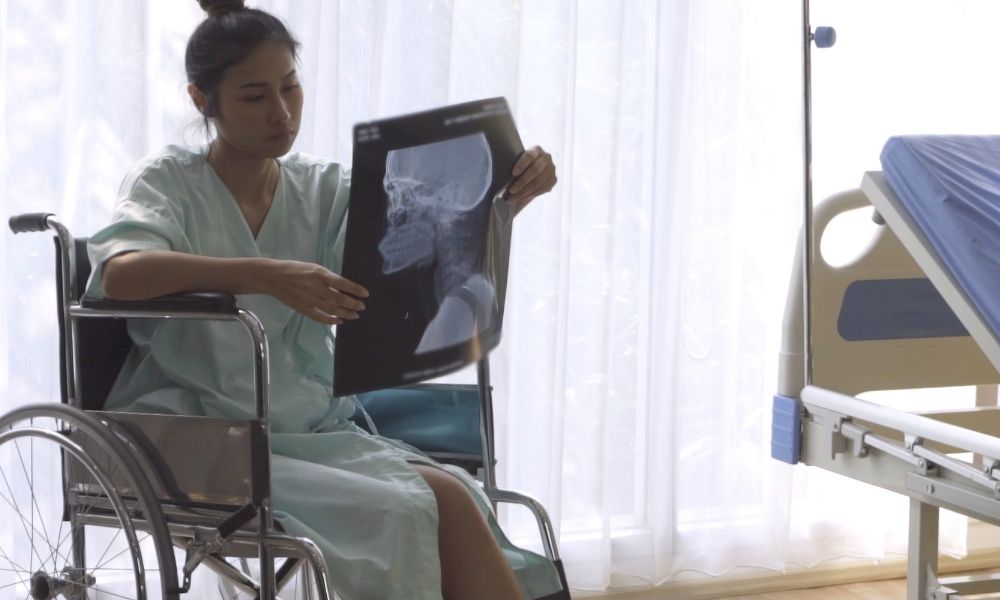Any parent who has watched their child battle serious injury or illness in hospital knows how helpless it can make you feel. And while you don’t have the medical training your child’s healthcare team brings to the table - or hospital bed, you do have your own parental instinct and know your child in a way medical practitioners simply cannot.
For others, it’s a parent or partner - or even yourself, lying in that hospital bed knowing your healthcare team is missing something. You don’t know what, but you do know it’s getting worse, and you don’t feel you’re being heard when you say so.
In the past, there has been little you can do in this scenario. The good news is, this has changed.

Note: When is a legal help needed?
This article is intended to provide useful information to Queenslander's seeking to assert their right to a second opinion via the "Ryan's rule" system. If seeking a second opinion while in a Queensland hospital then following the steps shown should be the first steps. If you believe you've suffered an injury as the result of medical negligence or misdiagnosis then you can seek legal advice.
Ryan’s story
In 2007, three-year-old Ryan Saunders tragically died from Toxic Shock Syndrome stemming from an undiagnosed Streptococcal infection.
Four days after Ryan’s mother took her son to his GP as he had been complaining of pain all over his body, where he was misdiagnosed with mumps and prescribed Panadol and Nurofen, his condition had not improved. He was transferred by ambulance to Emerald Hospital, then later transferred to Rockhampton Hospital.
His infection continued to go undiagnosed and he deteriorated further. Thirty hours after being admitted, Ryan died, despite his parents repeatedly saying something was seriously wrong.
The Coroner found Ryan’s passing was likely preventable had his healthcare team acted on the concerns his parents had raised. This spurred Ryan's family to campaign for a change to the ways parents can advocate for their children in healthcare so that no other family had to experience the same senseless loss due to medical negligence.
What is Ryan’s Rule?
Introduced in Queensland in 2013, first initiated by Children’s Health Queensland, the rule allows patients, parents or caregivers to request an immediate clinical review if the patient's health condition is getting worse or not improving as well as expected.

A three-step escalation process, Ryan’s Rule is not specific to children and applies to all patients admitted to any Queensland Health public hospital—including the emergency department—and in some Hospital in the Home (HITH) services.
Steps to take for Ryan’s Rule
If you - as a patient, parent, carer or family member, feel at any time that your concerns are not being heard in relation to treatment you can invoke Ryan’s Rule. The three steps are as follows:
- Step 1: Talk to a nurse or doctor about your concerns. If you are not satisfied with the response, go to the next step.
- Step 2: Talk to the nurse in charge of the shift. If you are not satisfied with the response, go to the next step.
- Step 3: Phone 13 HEALTH (13 43 25 84) or ask a nurse to phone for you and request a Ryan’s Rule Clinical Review. You will need to provide the following:
- Hospital name
- Patient’s name
- Ward and bed number (if known)
- Your contact number
Once the rule is enacted, a nurse or doctor will undertake a Ryan’s Rule clinical review of the patient and the treatment they are receiving.
What if you don’t live in Queensland?
While Ryan’s Rule is specific to Queensland, the Australian healthcare charter in each state gives patients the right to ask for a second opinion on their care and treatment. There are also rules across the various States and Territories that may be helpful:
- NSW has a program called REACH (Recognise, Engage, Act, Call, Help is on its way.) Much like Ryan’s Rule, parents can ask for a clinical review - these exact words alerting medical staff that you wish to take things further. If you are still worried, call your hospital's REACH number found on posters or flyers at the hospital. REACH is not in all hospitals in NSW.
- Canberra Hospital (ACT) has a Patient and Family Escalation Process and Call and Respond Early (CARE.) Again, should you as a parent, patient or caregiver feel the medical condition is worsening or is not receiving an adequate response from the staff on the ward, you can phone an internal number to attain a response from the CARE Responder, who will review the patient within 10 minutes, address your concerns, refer and liaise with other clinical staff as appropriate and provide feedback.
- In Victoria and WA, you can ask to speak to patient liaison officers at individual hospitals to escalate your own or family members’ care. WA also has the Health Consumers’ Council offering free advice and advocacy services to patients or carers who require assistance.
How to ask for help

Not quite ready to invoke Ryan’s Rule but you have concerns or questions? There are few tricks that may help you open the channels of communication.
- Speak up quickly, calmly and clearly. Your healthcare team wants the best outcome for all their patients, but hospitals are a busy environment, and staff often have multiple patients to care for and a hectic workload. You can best advocate for yourself or your loved one by explaining what your specific concerns are (the more specific your questions or concerns, the easier they are to address.) Staying calm can be easier said than done when you’re sleep deprived and stressed but take a deep breath and appreciate you catch more flies with honey.
- Talk to any member of your health care team. If you can’t get the doctor treating you or your loved one, speak up to any member of your healthcare team so that they can help you track down the information you need or request a second look.
- Don’t give up – while aggression is not tolerated in hospitals, this should not be confused with persistence. Follow steps one and two until you get the result you need. If this is not successful, don’t be embarrassed or afraid to ask for a clinical review.
While medical professionals are best equipped to diagnose and treat what ails us, never underestimate the power of your gut feeling – after all, you know a person well enough to know what is and isn’t right or ‘normal’ for them, information a stranger simply cannot have. So as your child, your own or your loved one’s advocate, if you believe the situation needs a fresh set of eyes and ears because your doctor is missing something, it is absolutely your right to request it.
